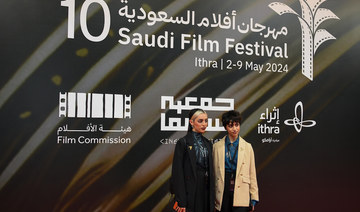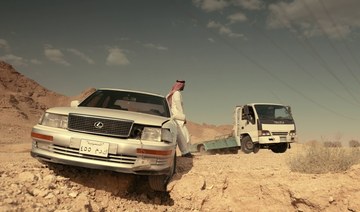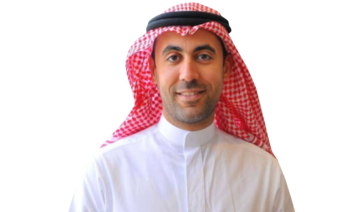LONDON: Russian oil major Rosneft will invest in gas pipelines in Iraq’s autonomous Kurdistan, expanding its commitment to the region ahead of an independence referendum to help it become a major exporter of gas to Turkey and Europe.
Kurdistan’s Parliament approved a plan on Friday to hold a referendum on independence on Sept. 25, ignoring opposition from Baghdad and the wider region as well as Western concerns that the vote could heighten tensions in the region.
Kurdistan has been exporting oil independently from Baghdad since 2014 and Kremlin-controlled Rosneft joined the list of buyers this year, lending the region hundreds of millions of dollars in loans guaranteed by future oil sales.
Now Rosneft is widening its investments to gas by agreeing to fund a natural gas pipeline in Kurdistan, Rosneft and the Kurdistan Regional Government (KRG) said on Monday. Two sources close to the deal said the investments would amount to more than $1 billion.
Erbil, the seat of the KRG in northern Iraq, needs money to fund the fight against Daesh and ease a budget crisis caused by low oil prices.
Kurdistan has relied on oil pre-finance deals to improve its fiscal position but has struggled to develop its large gas reserves.
For Rosneft, the world’s largest publicly listed oil company by production, the deal is a major boost to its international gas ambitions. Rosneft has long sought to challenge Gazprom, Russia’s gas export monopoly, in supplying gas to Europe.
For Turkey, it means the arrival of new supplies for its energy-hungry economy and the potential to become a major center for gas supplies to Europe.
The pipeline’s capacity is expected to handle up to 30 billion cubic meters (bcm) of gas exports a year, in addition to supplying domestic users. Kurdistan sits on some of the largest untapped gas deposits on Europe’s doorstep.
The volumes that Rosneft wants to help Kurdistan supply to export markets represent 6 percent of total European gas demand and one-sixth of current gas export volumes by Russia, by far the largest supplier of gas to Europe.
The pipeline will be constructed in 2019 for Kurdish domestic use, with exports due to begin in 2020.
“Successful implementation of the project ... will enable Rosneft to play a leading role in the building and expanding Kurdistan Region’s gas transport infrastructure and create synergy with existing projects for development of the oil and gas fields of the five blocks awarded to the company,” Rosneft said.
Rosneft secured a deal to develop five fields and has also agreed to help the region expand its oil pipeline infrastructure through which crude is exported via Turkey to global markets.
Kurdistan is seeking to boost oil exports to 1 million barrels per day (bpd) by the end of this decade from the current 0.65 million bpd.
The statement said Rosneft and the KRG had finished inspecting Kurdistan’s oil export pipelines and Rosneft would soon complete developing final documents for the expansion project.
Rosneft agreed to help Kurdistan expand the oil pipeline via so-called monetization, when investments are repaid via tariffs and oil flows.
Kurdish oil production has been mainly led in recent years by mid-sized firms such as Genel and DNO. Larger companies such as Exxon Mobil and Chevron are still at the exploratory stage.
Rosneft wins major Kurdistan gas deal
Rosneft wins major Kurdistan gas deal
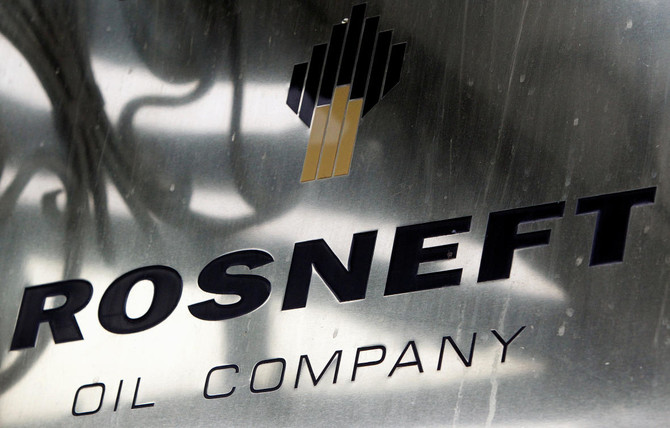
Britain’s Arab-focused SAFAR Film Festival to feature stories from 15 countries

- Biggest festival to date will include 60 screenings and events across four London venues, plus screenings in 8 other UK venues
LONDON: This year’s SAFAR Film Festival will be held from June 18-30 in nine British cities, making it the largest and longest-running Arab cinema event in the UK, according to the Arab British Center.
Curated by long-time SAFAR and Arab British Center collaborator Rabih El-Khoury, the 2024 program will explore the themes of dreams, hopes, and realities through stories from 15 Arab countries.
The festival’s program features 60 screenings and events across four London venues, as well as cinemas in Birmingham, Cardiff, Glasgow, Hull, Liverpool, Manchester, Oxford and Plymouth.
El-Khoury said the festival will include Sudanese and Palestinian cinema, and promised audiences “themes spanning family dynamics, loss, love, migration, and the harsh truths of war and politics.”
He said: “Within these stories, and through challenging and captivating cinema, we aim to facilitate exchange, reflection and share strength in solidarity.”
In its ninth year, SAFAR is viewed as the leading platform for showcasing Arab cinema in the UK.
The program features new releases, classics, archive film, and family-friendly screenings.
Highlights include the documentary “Life is Beautiful” by Mohamed Jalaby, which examines European solidarity, and the rigidity of borders, both physical and bureaucratic, amid the Gaza war in 2014.
Other works include “Bye Bye Tiberias” by Lina Soualem, a poignant exploration of four generations of Palestinian women; “The Burdened” by Yemeni director Amr Gamal, which follows Isra’a and Ahmed who struggle to provide a sense of normalcy for their three young children; and “Inshallah a Boy” by Amjad Al Rasheed.
“The festival forms a key part of our work to further understanding of the Arab world in the UK,” said Nadia El-Sebai, executive director of the Arab British Center.
“This year we are honored to work once more with Rabih El-Khoury and our guest curators and partners across the UK to present our biggest festival to date.
“Despite the shadows cast by the difficult realities faced across the region, SAFAR invites us to come together and find solace, hopes and dreams, in the universal language of cinema,” she said.
Amid privatization push, Pakistan says profit-making public entities also being considered for sale
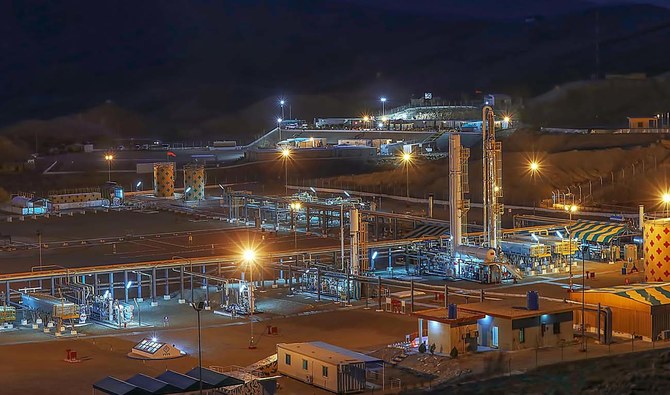
- South Asian nation is striving to deliver reforms amid talks with IMF for new bailout loan package
- Cabinet Committee on Privatization has in principle approved 24 entities for Privatization Programme
KARACHI: The office of Pakistan’s deputy prime minister said on Friday even profit-making state owned enterprises (SOEs) would be considered for privatization as the South Asian nation strives to deliver reforms amid talks with the International Monetary Fund for a new bailout package.
Under the last $3 billion bailout package from the IMF that was critical in averting a sovereign debt default last year, the lender has said state-owned entities whose losses are burning a hole in government finances would need stronger governance. Pakistan is now negotiating with the IMF for a larger, longer program for which it must implement an ambitious reforms agenda, including the privatization of debt-ridden SOEs.
“CCOP emphasized that even the SOE making profits shall be considered for privatization,” a statement from the deputy prime minister’s office said, referring to a meeting of the Cabinet Committee on Privatization (CCOP).
Among the top profit-making SOEs are Oil and Gas Development Company Limited, Pakistan State Oil Company Limited, Pak Arab Refinery Company, Pakistan Petroleum Limited, the National Bank of Pakistan, National Power Parks Management, the Government Power Holding Limited, Mari Petroleum and Neelum Jhelum Hydro Power Limited.
“CCOP, while approving 24 entities for the Privatization Programme, in-principle, for the time being, directed Ministry of Privatization to deliberate the phasing of each entity in consultation with the respective Ministries,” the statement added.
Among the main entities Pakistan is pushing to privatize is its national carrier, PIA. The government is putting on the block a stake ranging from 51 percent to 100 percent.
The disposal of the flag carrier and other entities like a sprawling steel mill in Karachi is a step that past elected governments have steered away from as it is likely to be highly unpopular, but progress on the privatization will help cash-strapped Pakistan pursue further funding talks with the IMF.
‘Asia’s largest nursery’ in Pakistan’s Pattoki awaits government support to bolster Gulf exports
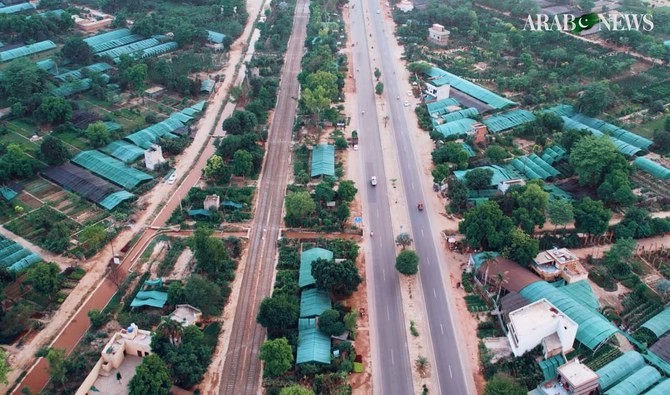
- Agriculture department says no other place worldwide where nurseries sprawl whole city
- Plant exporters urge government to lift ban on import of seeds and new plant varieties
Pattoki, PAKISTAN: From a bird’s-eye view, dozens upon dozens of nurseries can be seen dotting the city for several kilometers, featuring colorful flowers, massive trees and decorative plants. Around them, hundreds of workers flit about planting and trimming plants and plucking weed from the ground and out of clay pots.
This is a scene from Pattoki, a city in the Kasur district of Pakistan’s most populous Punjab province, that exporters and government officials say is the largest nursery market in Asia. Spread over a thousand hectares, the market employs around 100,000 people directly or indirectly.
“This [nursery] is spread over ten villages and each village’s population is estimated to be around 10,000 people,” exporter Lala Shaukat told Arab News in Pattoki last week. “This is a profitable business and people are earning well from it, and this [Pattoki] has become Asia’s biggest [nursery] market.”
“Pattoki is indeed Asia’s largest nursery due to its sprawl at a single place, in one city, and this is the biggest market in Pakistan from where the plants and flowers are not only supplied across the country, but also exported to Saudi Arabia, UAE and other Gulf countries,” said Dr. Basharat Saleem, a deputy director at the Punjab general agriculture directorate.
In Pattoki, an average nursery is spread over ten hectares with 30-40 gardeners taking care of around 350 types of plants and flowers that are sold both locally and exported.
“Around 350 varieties [of different plants] are available with us [at this nursery], including palm trees and shadow trees,” Bilal Ahmed, a nursery owner, told Arab News. “Then there are fruit plants and flower plants which are available with us in abundance.”
GULF EXPORTS
Exporter Sheraz Ali said Pakistan’s plants and flower exports to Gulf countries had increased since 2018 from around 15 containers yearly to 250 in 2024.
“In one container, around 10,000-12,000 plants are going [exported] and its value is around 3 million ($10,782) to 3.5 million rupees ($12,578),” Ali told Arab News. “In one acre, an average of 40,000-50,000 plants [are being planted].”
The plant protection department agreed with Ali, saying at least 250 containers were shipped yearly, with the Gulf region being a major destination.
“The exports of our plants and flowers have registered a significant increase in the Gulf region in the last couple of years, and the exporters’ number of 250 shipping containers for this year seems to be true,” said Dr. Khalid Zafar, a deputy director at the plant protection department, who said exact export numbers were not readily available with his department at the moment.
Saudi Arabia and the UAE were the closest destinations to Pakistan where shipments could reach within a week, exporters said. .
“We have been focusing on roses as per their demand to export them to bring dollars to our market, so that it could play a role in our country’s progress,” Ali added.
For consignments that have to be exported, plants and flowers are transferred from clay pots to a soilless medium known as cocopeat. This is a necessary step as globally exporting clay from one country to another is banned for fear that soil could transfer viruses and bacteria.
“First of all, to export to Saudi Arabia, Dubai and all these Arab countries, there should be soilless media as you cannot transfer clay from one country to another because it may contain viruses, bacteria and there is a huge chance of the spread of diseases so you can make it soilless,” Ali explained.
“So we import cocopeat from Sri Lanka to make it soilless and then use it in plants after taking it through a certain process.”
“GOVERNMENT SUPPORT”
Pakistani traders and growers, however, said despite the nurseries and flower markets being a “billion-dollar industry,” farmers were struggling to grow new varieties of plants and flowers and bag more orders from abroad.
“Dubai, Saudi Arabia, Kuwait, Oman, it is a huge market for us. I am exporting to only one country, Dubai [UAE], and the quantity to other countries is negligible,” exporter Shaukat, who has been in the business for 30 years, said. “We need the government’s assistance to boost exports. The government should cooperate with us and our exports can witness a huge increase. Unless we are presented as an industry, we cannot increase our exports.”
Shaukat said the government’s decision to ban the import of plants and seedlings to Pakistan had damaged business because growers could not bring in new varieties of plants.
“The world demands new varieties of [plants] as people don’t like the fifty-year-old variety,” Shaukat told Arab News.
Ahmed, the nursery owner, agreed that government support and incentives were key to the industry’s future growth.
“This is a billion-dollar industry in Pakistan and there is no focus of the government or any institution on it,” he said as he walked through a row of plants.
“If there is focus, this billion-dollar industry can earn huge revenue for both the government and farmers.”
Johnson Controls Arabia celebrates export milestone of Saudi-made scroll chillers to US
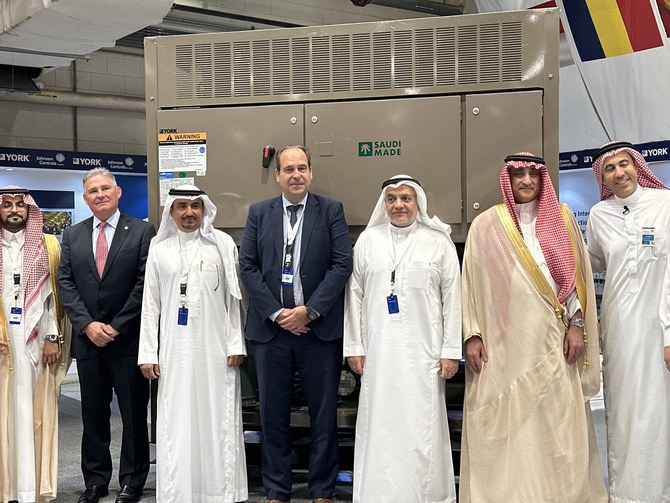
JEDDAH: A batch of 300 Saudi-made scroll chillers are set to be exported to the US in what is a first for the Kingdom, the CEO of Johnson Controls Arabia has announced.
Speaking to Arab News, Mohamad Al-Shaikh revealed the market value of the products stands at SR100 million ($26.66 million), and the shipment will come from the Johnson Controls Arabia Manufacturing Complex in King Abdullah Economic City.
Though the domestic demand for heating, ventilation, and air conditioning equipment and technology is growing, the total addressable market for Saudi Arabia is still small compared to the global demand, the executive said.
Reflecting on the milestone of the company’s largest export order to date, Al-Shaikh said: “It is a very proud moment for us as a Saudi company to reach a level where our Saudi-made products are compliance competitive to meet all the quality requirements according to the specification for the United States’ market.
“We have reached the maturity level where we are able to use Saudi talents, Saudi engineering and Saudi supply of chain to ship our fine products to the US market.”

The company plans to increase exports from 30 percent to 60 percent of its total production output over the next three years, aligning with the national industrial strategy and Vision 2030 to enhance economic diversification and local production development.
He said: “We are thrilled also to announce our most ambitious and largest export order of 1,000 YORK Scroll Chillers for next year over three phases.”
The event also housed the signing of a memorandum of understanding between Johnson Controls Arabia and the Saudi Export Development Authority.
This agreement aims to establish a strategic account for JCA, enhancing Saudi Arabia's non-oil exports capable of competing on a global scale, in line with Vision 2030.
Additionally, Johnson Controls Arabia announced the groundbreaking for a new factory expansion, supported by the Local Content and Government Procurement Authority. The expansion will start manufacturing water-cooled chillers with a high capacity of up to 6,000 tons of cooling, the world’s largest air conditioning product.
During his opening keynote, Al-Shaikh underscored the company’s dedication to innovation, sustainability, and supporting the local content through exports of Saudi-made products.
“This milestone reflects our unwavering commitment to advancing local content and the Saudi-made initiative, which are integral to the Kingdom's economic diversification efforts. By exporting Saudi-made products to the US market and 26 other global markets, we are not only contributing to the growth of our economy but also showcasing the quality and innovation of our Saudi products on a global stage,” he stated.
After commending the long-standing bilateral trade relations between the Kingdom and the US, Al-Shaikh added: “At JCA, we have a vision and a strong commitment to the Saudi Market, where we focus on reinforcing localization and boosting job creation to support the economy while giving back to the community.”
Johnson Controls Arabia has made significant strides in local manufacturing, with 80 percent of its sales coming from locally manufactured products.
The company’s exports have also grown to account for over 30 percent of its total production, demonstrating its commitment to global expansion and market diversification.
Pakistan working to issue domestic green sukuk bonds by December — finance minister
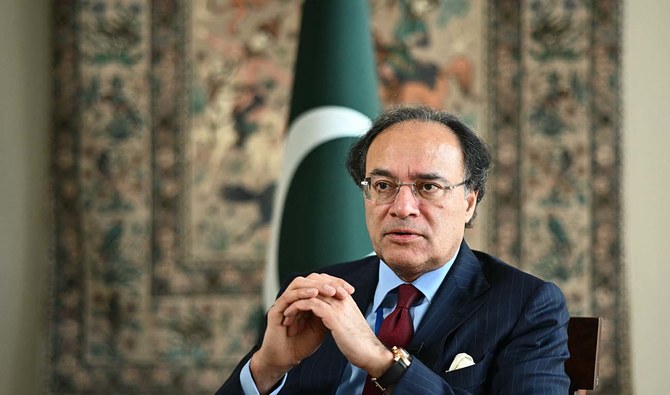
- Proceeds of green bonds used to finance climate change mitigation, adaptation and environmental projects
- According to recent World Bank study, Pakistan faces potential annual GDP losses of up to 1 percent due to climate-related risks
KARACHI: Federal Minister for Finance and Revenue Muhammad Aurangzeb said on Friday the Pakistan government was working to issue domestic green sukuk bonds by December 2024 to fund environmentally sustainable infrastructure projects.
The green sukuk is a Shariah-compliant interest-free bond in which instead of interest, investors receive an agreed share of the profits generated by the pool of underlying assets, which are partially owned by investors. Proceeds of green bonds are used to finance climate change mitigation and adaptation, and environmental projects.
“The government is working on issuing domestic green sukuk bonds by December 2024 to finance sustainable development projects,” Aurangzeb said as he delivered an online keynote speech at the UK-Pakistan Green Investment Forum, organized by the British High Commission in Pakistan.
In his address, the finance minister emphasized Pakistan’s commitment to addressing climate change and promoting green investment opportunities, and highlighted Pakistan’s vulnerability to the adverse effects of climate change, despite its low contribution to global greenhouse gas emissions.
According to a recent World Bank study, Pakistan faces potential annual GDP losses of up to 1 percent due to climate-related risks.
Acknowledging a significant funding gap in adaptation, resilience, and mitigation projects and the need for a better portfolio of green investment projects, the minister emphasized Pakistan’s reliance on the private sector for support in this regard and highlighted the government’s efforts to enhance investor confidence in bankable green opportunities.
He also outlined Pakistan’s plans to utilize innovative financing instruments like green sukuk to raise international climate finance.
Pakistan ranks among the top 10 countries worldwide most affected by climate change and natural disasters.


